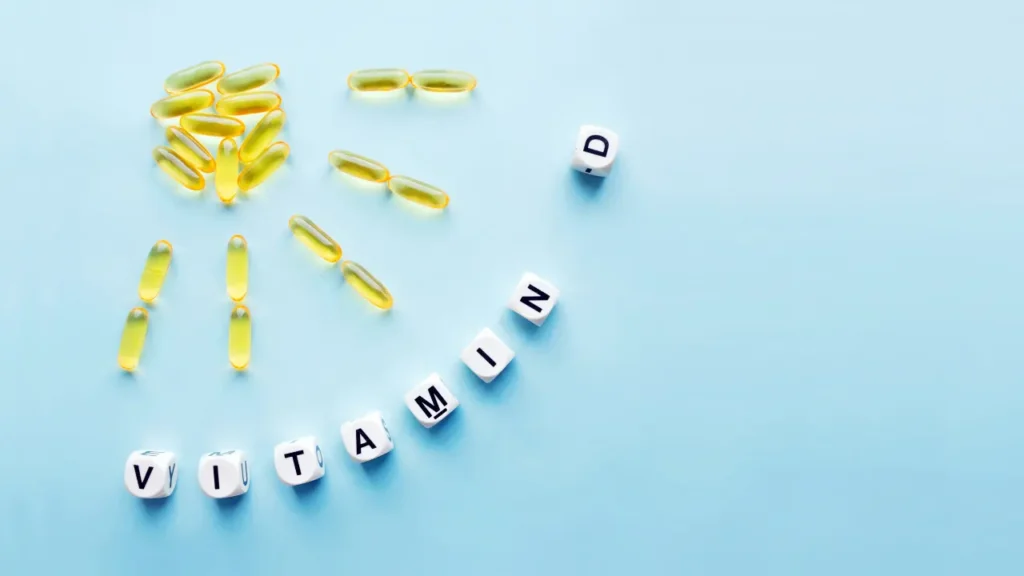Many cultures have long used shiitake mushrooms (Lentinula edodes) as food and medicine, especially in East Asia. Because of its unique flavor and growing curiosity about its potential health advantages, it has become more well-known in Western nations. Shiitake mushrooms have gained interest for their possible nootropic properties in addition to their use as a dietary item. This article explores the properties, potential interactions with other drugs, adverse effects, best dosage, health advantages, and responsible usage of shiitake mushrooms as a nootropic supplement.
You May Also Like:
What Are the Best Mushrooms for Brain Health? Here Are the Facts.
5 Things to Consider When Choosing the Best Mushrooms for Mental Health
Shiitake Mushroom: Benefits, Dosage, Side Effects, Drug Interactions, and Other Important Information is an original (NootropicsPlanet) article.
Nature of Shiitake Mushroom
Originating in East Asia, shiitake mushrooms are grown for both their culinary and medicinal qualities. They are distinguished by their brown, umbrella-shaped tops. They can be found growing on dying hardwood trees. Polysaccharides like lentinan and eritadenine as well as sterols are among the active ingredients found in shiitake mushrooms. Its therapeutic qualities, which include boosting the immune system, lowering cholesterol, and perhaps having antiviral effects, are attributed to these substances.
Health Benefits of Shiitake Mushroom
The health benefits of shiitake mushrooms are vast. They are a rich source of B vitamins, vitamin D (when exposed to sunlight), selenium, and other antioxidants that contribute to overall health and well-being. The most well-documented benefits include:
- Immune System Support: Shiitake contains polysaccharides like lentinan, which stimulate the immune system by enhancing the activity of certain white blood cells known as macrophages, thereby offering protection against infections and potentially cancer.
- Cardiovascular Health: Eritadenine and sterols in shiitake mushrooms help lower cholesterol levels by inhibiting cholesterol synthesis in the liver. Lower cholesterol levels can help improve heart health.
- Anticancer Properties: Several studies suggest that shiitake mushrooms can inhibit tumor growth, particularly in cases of stomach and colorectal cancers, though more research is needed to fully understand these effects in humans.
- Anti-inflammatory and Antioxidant Effects: Chronic inflammation and oxidative stress are key contributors to cognitive decline. The anti-inflammatory and antioxidant properties of shiitake mushrooms may help mitigate these factors, potentially protecting neuronal health and function.
- Neurogenesis: Some studies suggest that the compounds in shiitake mushrooms may support the growth of new neurons or neurogenesis, which is vital for learning and memory. However, this area requires further research to determine the exact impact on human brain health.
- Blood Flow Improvement: By potentially lowering cholesterol and exerting anti-inflammatory effects, shiitake mushrooms might improve blood flow to the brain, thereby enhancing cognitive function and alertness.
- Cognitive Support: By reducing inflammation and supporting antioxidant defenses, shiitake mushrooms might help maintain cognitive function, especially in aging populations.
- Mood Regulation: The potential effects of shiitake on brain health could extend to mood regulation, possibly due to its impact on inflammation and oxidative stress, which have been linked to mood disorders.

Chemistry of Shiitake Mushroom
Shiitake mushrooms are rich in a variety of bioactive compounds that contribute to their health benefits. The primary compounds include:
- Polysaccharides: Lentinan is the most well-known, a beta-glucan with potent immunostimulatory effects. These compounds enhance the body’s immune response through the activation of immune cells.
- Eritadenine: Eritadenine contributes to shiitake’s cholesterol-lowering effects by influencing lipid metabolism in the liver.
- Sterols: Shiitake mushroom also contains sterols such as ergosterol, which can be converted into vitamin D2 upon exposure to sunlight, supporting bone health and immune function.
- Triterpenes: These have been shown to offer liver protection, antihypertensive, and anti-inflammatory effects.
Physiological Mechanism of Action of Shiitake Mushroom
Shiitake mushrooms’ physiological mode of action is a complex interaction of bioactive substances that affect multiple major systems in the human body. These systems are important for sustaining health and maybe improving cognitive function. Shiitake’s polysaccharides, particularly lentinan, are the key to its health advantages. They activate macrophages and other immune cells, strengthening the body’s defenses against infections and potentially cancerous cells. Another important substance called erytadenine helps lower blood cholesterol by blocking an enzyme that the liver needs to synthesize cholesterol. This indirectly results in better heart health.
Moreover, shiitake mushrooms’ antioxidant and anti-inflammatory qualities are essential to their health advantages. These characteristics assist in reducing the negative effects of oxidative stress and chronic inflammation, which are known to be risk factors for a number of diseases, including neurodegenerative disorders. The preservation of neuronal health and function is important for cognitive functions and overall brain health.


Optimal Dosage of Shiitake Mushroom
Many supplements lack standardized extracts as different companies use different extracts of shiitake mushrooms. Thus, it is difficult to determine the ideal dosage of shiitake mushroom for nootropic effects. Plus, individual reactions toward shiitake mushrooms may vary widely. However, when shiitake mushroom is taken along with a well-balanced diet, it generally has great health benefits. It is important to speak with a healthcare professional for specific recommendations, although dosages of 500–2000 mg of shiitake extract per day are frequently suggested in the literature for people thinking about supplementation.
Side Effects of Shiitake Mushroom
When eaten in moderation, shiitake mushrooms are typically harmless for most individuals. Excessive shiitake supplementation might cause gastrointestinal distress, allergic skin responses, or photosensitivity. People who are allergic to mushrooms should stay away from shiitake mushrooms completely.


Potential Substance Interactions of Shiitake Mushroom
Shiitake mushrooms may react with some medications, especially those that impact the immune system or blood clotting. Immunosuppressive treatments may be hampered by the immune-modulating actions of shiitake, and blood-thinning therapies may be made more effective by its possible anticoagulant qualities. Before starting any new supplement, you should always discuss it with a healthcare provider, especially if you take medication or have pre-existing issues.
Best Responsible Use of Shiitake Mushroom
If you are interested in taking shiitake mushroom as a nootropic supplement, you need to learn more about its effects. You must use this supplement responsibly, such as avoiding depending solely on supplements to improve cognition, monitoring for any negative effects, and beginning with lesser dosages to gauge tolerance. To optimize the potential advantages of shiitake mushrooms, it is recommended to incorporate them into a healthy, balanced diet along with other lifestyle behaviors that support brain health, such as regular exercise, proper sleep, and mental stimulation.
Shiitake Mushroom:
Conclusion
Mushrooms are a great source of vitamin D and they can provide you with low-calorie protein and antioxidants. In this article, shiitake mushrooms have been prized for their potential health benefits. Shiitake mushrooms are rich in nutrients and bioactive compounds which are believed to support immune function, cardiovascular health, and overall well-being. Its nootropic ability is also being explored as it is believed that the antioxidant effects of shiitake mushrooms protect neuronal health and preserve their function.
Additionally, shiitake mushrooms contain ergosterol which would be converted to vitamin D2 when exposed to sunlight. While research suggests promising effects, more studies are needed to validate these findings and determine optimal dosages for supplementation. If you’re considering shiitake mushroom supplements, consulting with a healthcare professional can help ensure safe and effective use.


References:
- Shiitake Mushrooms: Health Benefits, Nutrition, and Uses. Retrieved from:https://www.webmd.com/diet/health-benefits-shiitake-mushrooms
- Shiitake Mushrooms: Benefits of Shaking up Mealtime. Retrieved from: https://www.verywellhealth.com/shiitake-mushrooms-8363827
- Lentinula edodes (shiitake mushroom): An assessment of in vitro anti-atherosclerotic bio-functionality. Retrieved from: https://www.ncbi.nlm.nih.gov/pmc/articles/PMC6302894/
- Β-Glucan from Lentinula Edodes Prevents Cognitive Impairments in High-Fat Diet-Induced Obese Mice: Involvement of Colon-Brain Axis. Retrieved from: https://pubmed.ncbi.nlm.nih.gov/33541370/
Important Note: The information contained in this article is for general informational purposes only, and should not be construed as health or medical advice, nor is it intended to diagnose, prevent, treat, or cure any disease or health condition. Before embarking on any diet, fitness regimen, or program of nutritional supplementation, it is advisable to consult your healthcare professional in order to determine its safety and probable efficacy in terms of your individual state of health.
Regarding Nutritional Supplements Or Other Non-Prescription Health Products: If any nutritional supplements or other non-prescription health products are mentioned in the foregoing article, any claims or statements made about them have not been evaluated by the U.S. Food and Drug Administration, and such nutritional supplements or other health products are not intended to diagnose, treat, cure, or prevent any disease.
